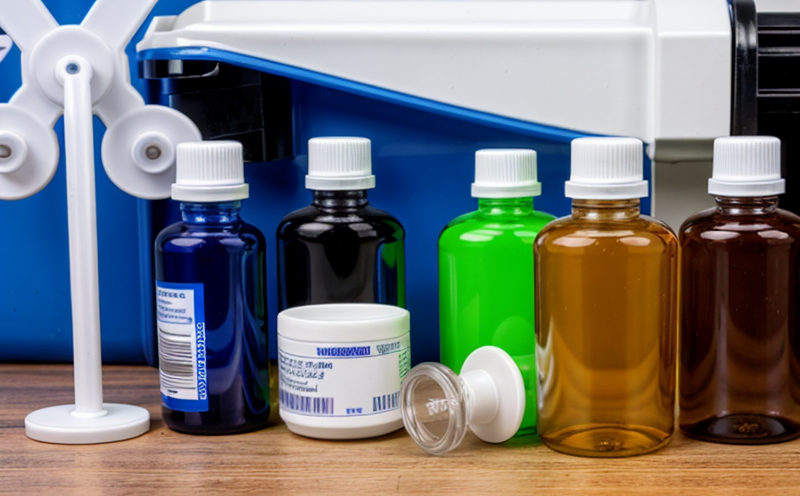EN 16198 Phosphorus in Pharmaceutical Waste
The European Standard EN 16198 specifies methods for determining phosphorus content in pharmaceutical waste. This standard is crucial for ensuring that the environmental impact of pharmaceutical waste management meets regulatory requirements set by various countries, including those within the European Union and beyond.
Pharmaceutical waste often contains a variety of chemicals and compounds that can be harmful to the environment if not properly managed. By quantifying phosphorus content in this waste, it becomes possible to assess potential environmental risks associated with improper disposal methods. This standard helps facilities comply with stringent regulations aimed at minimizing adverse effects on ecosystems.
The testing procedure outlined by EN 16198 involves several steps: sampling, digestion of the sample using strong acids, and subsequent measurement of phosphorus content via spectrophotometric analysis or colorimetric techniques. The accuracy and precision of these measurements are critical for reliable results.
Given its stringent requirements and emphasis on accuracy, EN 16198 ensures that pharmaceutical waste is handled in a manner that minimizes ecological damage while also supporting sustainable practices within the industry. Compliance with this standard not only protects public health but also contributes to more responsible stewardship of natural resources.
For facilities dealing with large volumes of pharmaceutical waste, adhering to EN 16198 can streamline compliance processes and demonstrate commitment to environmental protection efforts. Additionally, it provides a clear framework for tracking progress towards reducing overall environmental impact through improved management practices.
In summary, implementing EN 16198 helps ensure proper handling of pharmaceutical waste by providing precise methods for measuring phosphorus levels. This approach supports both regulatory compliance and sustainable business operations, making it an essential tool for quality managers, compliance officers, R&D engineers, and procurement professionals working in this field.
- Sampling: Collection of representative samples from different parts of the waste stream.
- Digestion: Treatment of samples with strong acids to release phosphorus into solution.
- Measurement: Analysis using spectrophotometry or colorimetry for accurate quantification.
Industry Applications
This standard finds application in various sectors, including hospitals and pharmaceutical manufacturing plants. In these settings, the presence of high phosphorus levels could indicate improper handling practices or incomplete treatment processes.
- Hospitals: Ensuring that waste from medical facilities does not contain excessive amounts of phosphorus which can pollute water bodies upon discharge.
- Pharmaceutical Manufacturing Plants: Monitoring the effectiveness of waste treatment systems to prevent contamination downstream.
- Research Institutions: Supporting scientific research into better methods for managing hazardous materials safely and effectively.
Eurolab Advantages
Eurolab offers comprehensive services tailored to meet the needs of those involved in pharmaceutical waste management. Our team comprises experts who possess extensive experience in handling complex samples and interpreting results accurately.
We provide state-of-the-art facilities equipped with cutting-edge technology necessary for precise analysis according to EN 16198. This ensures that clients receive reliable data every time, allowing them to make informed decisions regarding their waste management strategies.
Our commitment extends beyond just providing results; we also offer expert advice on best practices for managing pharmaceutical waste effectively. Whether you need guidance on selecting appropriate disposal methods or implementing new policies within your organization, Eurolab is here to assist you every step of the way.
By partnering with us, you gain access to world-class expertise and resources designed specifically around EN 16198 compliance. Our goal is to help our clients achieve not only regulatory compliance but also operational excellence when it comes to managing their pharmaceutical waste responsibly.
International Acceptance and Recognition
The European Standard EN 16198 has gained significant recognition internationally due to its rigorous methodology and commitment to environmental protection. Many countries have adopted this standard as a benchmark for measuring phosphorus content in pharmaceutical waste.
Countries like the United States, Canada, Australia, and several others recognize the importance of adhering to EN 16198 when dealing with hazardous materials. This global acceptance ensures that regardless of where your facility is located, you can confidently rely on our services for accurate testing according to internationally recognized standards.
Furthermore, compliance with EN 16198 demonstrates a company’s dedication to sustainable practices and responsible stewardship of natural resources. It showcases how serious an organization is about minimizing its environmental footprint while maintaining high-quality operations.
In conclusion, embracing EN 16198 not only facilitates easier interaction with international partners but also enhances your reputation as a leader in pharmaceutical waste management within the global community.





